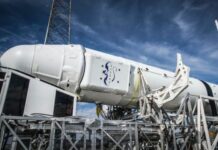The global artificial intelligence (AI) in mobility market size is projected to surpass around USD 337.27 billion by 2033 and is growing at a compound annual growth rate (CAGR) of 49.89% from 2024 to 2033.
Artificial intelligence (AI) in mobility encompasses technologies applied to transportation systems and vehicles to enhance efficiency, safety, and usability. AI-powered applications include route optimization, decision-making, and real-time object recognition in autonomous vehicles. AI also supports traffic prediction, ride-sharing optimization, and advanced vehicle-to-everything (V2X) communication for improved infrastructure integration. The overarching vision for AI in mobility is to create intelligent, resource-efficient, and sustainable transportation systems.
Why Artificial Intelligence (AI) in mobility?
Artificial Intelligence (AI) in mobility is transforming transportation systems by addressing challenges related to efficiency, safety, and sustainability. This technology enables optimized operations by improving route planning, reducing travel times, and managing traffic in real time. With AI, traffic flow becomes smoother, and urban congestion is mitigated, leading to more efficient and user-friendly transportation networks.
Safety is another critical area where AI is making a significant impact. Advanced systems like autonomous vehicles rely on AI to process environmental data, make decisions, and navigate complex road conditions. Driver-assistance technologies use sensors and cameras to monitor surroundings, warn drivers of potential dangers, and prevent accidents. AI also analyzes driver behavior to detect risks and encourage safer practices.
Sustainability is an essential aspect of AI in mobility, as it helps reduce the environmental impact of transportation. By optimizing fuel usage, promoting electric vehicle adoption, and encouraging shared and public transport through platforms like Mobility-as-a-Service (MaaS), AI contributes to lowering carbon emissions. These advancements align with global goals for sustainable urban development.
AI also enhances the user experience by personalizing services to meet individual preferences. From adjusting vehicle settings based on previous behavior to integrating multiple modes of transportation into seamless travel solutions, AI simplifies and improves journeys for users. Furthermore, AI-powered innovations such as predictive maintenance and autonomous delivery systems are driving efficiency in logistics and fleet management, ensuring reliability and reducing operational costs.
On a broader scale, AI supports economic growth and urban planning initiatives. It enables the development of smart cities by integrating transportation systems with real-time data analytics, making mobility smarter and more responsive. Regions across the globe are leveraging AI to address their unique challenges, from reducing traffic delays in urban centers to creating accessible mobility solutions in underserved areas. These applications underscore the pivotal role of AI in shaping the future of transportation.
Traffic Insights
According to the INRIX Global Traffic Scorecard 2022, travel demand surged globally, with 58% of urban areas experiencing increased traffic delays compared to 2021. London led as the most congested city, with 156 hours of delay per driver (up 5%), followed by Chicago (155 hours, up 49%), Boston (134 hours, up 72%), and Toronto (118 hours, up 59%). Traffic rebounded significantly in North America, albeit slightly trailing Europe.
AI Revolution in Automotive
The automotive industry is undergoing a transformative shift, with predictions that 98% of new vehicles will feature AI by 2025. The global AI automotive market is expected to reach $37.91 billion by 2033. AI-driven automotive applications enhance safety and user experience by offering:
- Driver Behavior Analytics: IoT sensors monitor speed, sharp turns, and braking patterns to provide insights into driver conduct.
- Accident Prevention: Cameras and sensors detect driver activity and issue alerts.
- Personalization: AI adjusts seat settings, climate, and entertainment based on user preferences.
Trends in AI-Driven Mobility
- Advanced Algorithms: Neural networks and computer vision are refining vehicle perception and decision-making.
- Autonomous Vehicles: AI enables safer, efficient self-driving cars, marking a significant market trend.
- Smart Traffic Management: AI optimizes traffic flow and reduces congestion.
- Big Data Integration: AI and big data analytics drive informed decisions in transportation planning.
- AI-Powered Mobility Services: Ride-sharing and predictive maintenance are enhanced through AI, improving efficiency and user satisfaction.
AI in Mobility Market Regional Analysis
What factors North America’s leadership in the AI mobility market?
North America stands at the forefront of the AI in mobility market, driven by advancements in the United States and Canada. The U.S. leads with widespread deployment of AI in areas like autonomous vehicles, traffic management, and smart infrastructure, underpinned by robust investments and a dynamic tech ecosystem. Canada complements this leadership through its focus on innovative smart mobility solutions and enhanced transportation systems. The region’s emphasis on integrating AI across various mobility applications has positioned it as a global pioneer.
Europe’s Role in Advancing AI in Mobility Market
Europe plays a significant role in shaping the AI in mobility market, with countries such as Germany, France, and the UK spearheading efforts in automotive innovation and smart city development. The region’s emphasis on regulatory compliance and sustainability drives the adoption of advanced AI technologies for transportation and infrastructure. By maintaining high standards and fostering strategic growth, Europe continues to lead in deploying cutting-edge mobility solutions.
Why is Asia-Pacific experiencing rapid growth of AI in mobility market?
The Asia-Pacific region is experiencing a surge in the adoption of AI in mobility, led by key players like China, Japan, and India. This growth is driven by substantial infrastructure expansion, rising investments in autonomous vehicles, and the increasing use of smart transportation systems. AI innovations in the region focus on improving traffic management, enhancing vehicle automation, and advancing smart city initiatives, making Asia-Pacific a dynamic hub for mobility transformation.
LAMEA’s Emerging AI Mobility Market
The LAMEA region is gradually building its presence in the AI mobility market, with growing interest in smart transportation solutions and infrastructure enhancements. Brazil and South Africa lead the charge with investments in mobility technologies, while the Middle East is expanding its focus on AI-driven transportation systems despite existing economic and infrastructure challenges. As investments rise and AI advancements continue, the region demonstrates significant potential for growth in the mobility sector.
Technological Applications
- Machine Learning (ML): Enhances predictive analytics, optimizing routing, fuel efficiency, and real-time decision-making.
- Natural Language Processing (NLP): Improves interaction with systems via voice commands for safer, user-friendly experiences.
- Computer Vision: Essential for autonomous navigation, obstacle detection, and driver-assistance systems.
- Robotics: Powers autonomous delivery systems, enhancing logistics and last-mile delivery efficiency.
- Sensor Fusion: Integrates data from various sensors (LiDAR, radar, GPS) to improve navigation and object detection in autonomous systems.
Applications in Mobility
- Autonomous Vehicles: AI drives self-navigating cars and trucks, enhancing safety and mobility accessibility.
- Smart Transportation: Real-time AI solutions optimize traffic management and public transit efficiency.
- Fleet Management: AI predicts maintenance needs, optimizes routes, and analyzes driver behavior to improve operations.
- Mobility-as-a-Service (MaaS): Centralized platforms integrate transportation options, promoting shared and public transport usage.
- Predictive Maintenance: Proactively forecasts vehicle maintenance needs, reducing downtime and costs.
Deployment Modes
- Cloud-Based Solutions: Offer scalability, real-time data sharing, and advanced analytics capabilities.
- On-Premises Solutions: Provide enhanced control, data security, and customizable operations for businesses with stringent compliance needs.
Related Studies
AI in Smart Cities Market – The global artificial intelligence (AI) in smart cities market size was accounted for USD 38.56 billion in 2023 and is expected to garner around USD 208.25 billion by 2033 with a CAGR of 18.37% from 2024 to 2033.
AI in Chips Market – The global artificial intelligence (AI) chips market size was accounted for USD 21.14 billion in 2023 and is expected to garner around USD 520.91 billion by 2033 with a CAGR of 37.77% from 2024 to 2033.
Top Companies operating in Artificial Intelligence (AI) in Mobility Market
- Waymo
- Tesla, Inc.
- NVIDIA Corporation
- IBM Corporation
- Baidu, Inc.
- Intel Corporation
- Alphabet Inc.
- Microsoft Corporation
- Apple Inc.
- Aurora Innovation, Inc.
- Apple Inc.
- Uber Technologies, Inc.
- Qualcomm Technologies, Inc.
- Bosch Mobility Solutions
- Daimler AG















